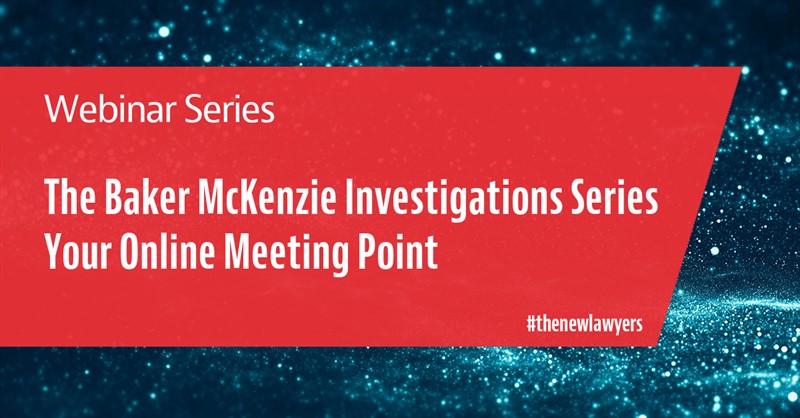Please join us for a new weekly video series, hosted by Baker McKenzie’s North America Government Enforcement partners Tom Firestone and Jerome Tomas.
This weekly briefing is available on demand and will cover hot topics and current enforcement actions related to white collar crime and criminal investigations in the US and abroad to arm you with the information you need to start your business week.
As one of the largest global law firms, we will call upon our exceptionally deep and broad bench of white collar experts throughout the world and particularly in the commercial hubs of Europe, Asia, Africa and Latin America to join our weekly discussion series.


